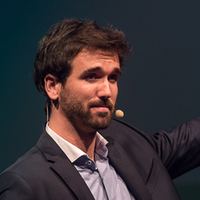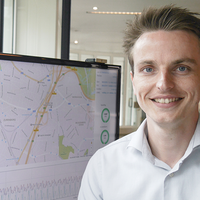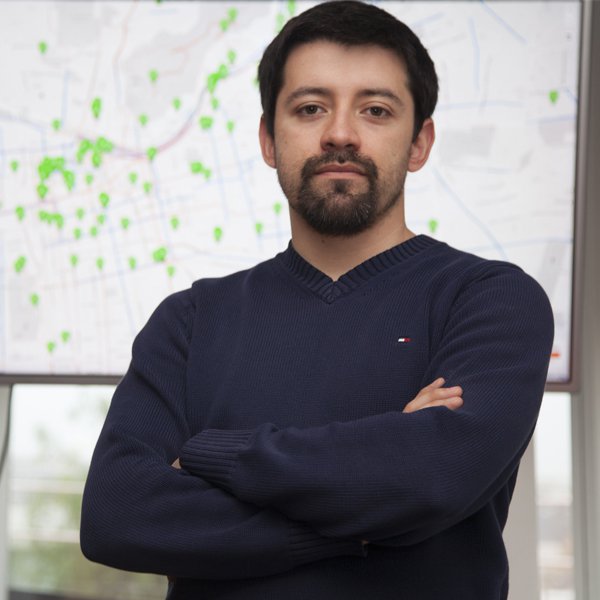In 2015, Copenhagen (Denmark)
overtook Amsterdam (Holland) as the most bike-friendly city in the world,
according to the biannual index published by a specialized consulting firm. The
ousting of the Dutch capital by the Danish capital highlights a particular reality:
"any city can by transformed by incentivizing the use of a bicycle,"
says Iván Páez, the founder of Kappo Bike. With this initiative, this young
Chilean aims to make cities a more pleasant place to live and navigate. And
thanks to this initiative, Páez has been named as one of MIT Technology Review,
Spanish edition´s Innovators Under 35 Latin America 2017.
A year living in Denmark was enough to lead Páez to dream of every city being
as safe for cyclists as Copenhagen. According to this young visionary, to make
this a reality we will have to invert the vicious cycle of bicycle use. People
do not feel safe using a bicycle as a mode of transport in cities, but
"increased use means greater visibility, and greater visibility leads to
greater safety," he explains. To achieve this, Páez has designed Kappo
Bike to take action on three different fronts.
On the one hand, Kappo is a game which aims to motivate users to opt for a
bicycle as their daily mode of transport. In Western countries, almost everyone
knows how to ride a bicycle and has owned one at some time or another. But
"one out of every three people rarely uses their bicycle," Páez
points out. Today, these same people have smartphones, and many of them spend
several hours each day playing games like Candy Crush. So, why not use
technology to influence behavior?
Kappo, as a game, is unique because in order to advance, the app must register
an urban trip made by bicycle. Currently, the app boasts over 50,000 users who
make at least two trips per week, in over 200 cities in 50 countries.
But the data generated during the users´ trips serve not only to fuel the game
– Kappo also gathers and analyzes this data. The purpose of this data is the
design and geolocation of ciclovías (Spanish for bike paths), "which are
often very different from the way cyclists actually navigate the city,"
Páez highlights. Kappo´s aggregated data has proven very helpful for generating
activity maps, discovering the routes favored by cyclists and whether these
coincide with the road infrastructures created specifically for this mode of
transport, and indicating the desirability of creating new infrastructures in
certain locations. "When you include citizens in urban planning, it
becomes smart; it adapts to people´s needs," he adds. Kappo has signed
collaboration agreements with several cities (two of which are in Denmark) in
order to utilize this data to improve road infrastructures. "If there is a
social demand, governments will allocate funds to infrastructure," Páez affirms.
With Kappo, these funds can be channeled into infrastructures which cyclists
will truly benefit from.
After raising awareness among users and public administrations, the third
vector of Kappo targets companies, who often disapprove of bicycles as the
primary mode of transport of their employees. "Even if the user is
motivated and the government provides [the necessary] infrastructures,
companies sometimes actively discourage [the use of bicycles]," the young
Chilean highlights. So Páez pitches to companies the idea that incentivizing
this activity is an investment, not a risk, since it contributes to the
wellbeing of their employees and can be viewed as a socially responsible
activity. So Kappo also serves as a platform where companies compete to achieve
the highest motivation level among their employees to ride their bikes to work
by using the application. 200 companies participated in the most recent
competition, launched in the central region of Chile.
In the words of the researcher at the National Autonomous University of México,
associate professor at the Massachusetts Institute of Technology (MIT, US),
Carlos Gershenson, Páez´s solution "is very innovative in the approach to
improving urban mobility." According to this jury member for the Innovators
Under 35 Latin America 2017 competition and expert in self-governing urban
systems and traffic management, "Kappo´s results are enouraging."




